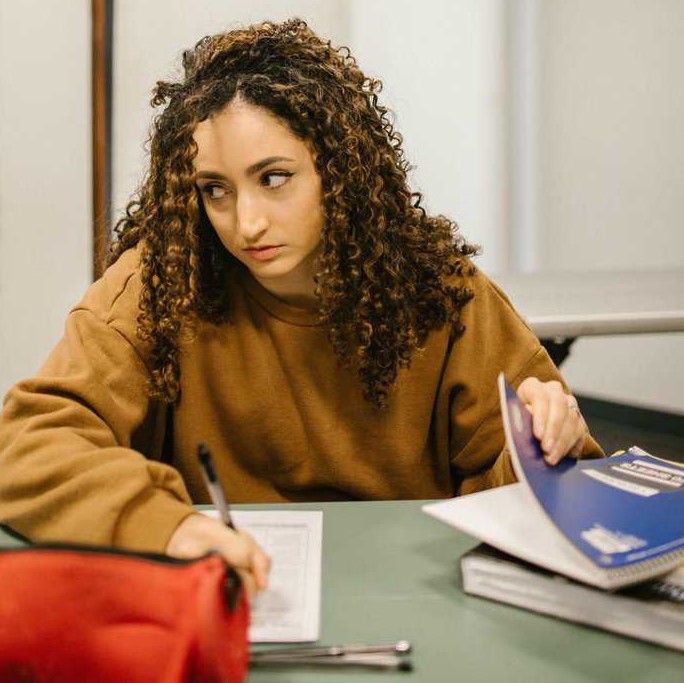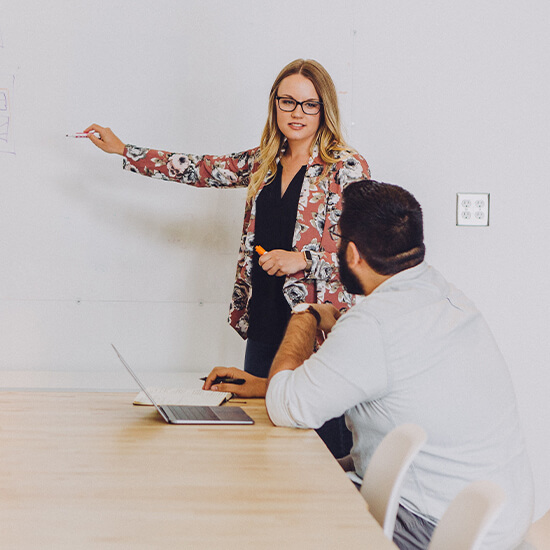“There are no secrets to success. It is the result of preparation, hard work, and learning from failure.”
Founder's story
I love reading. I love math. I love teaching. I love to ideate. And I’m blessed by a series of serendipities. A bachelor’s degree to pharma sales to the master’s degree to a bit of teaching to master of philosophy to editing – what do you call it?
I wasn’t even sure whether editing was going to be my career. The first title I edited was on Keats and Romantic Celticism, and the author was furious about my editing. (I have written about it elsewhere). Should I be an editor?
While the decision was not yet made, I worked on the second edition of another book. The author wrote back saying, “No one has ever read my book so thoroughly since the first edition. Can you thank the copyeditor for me?” And I was part of some of the challenging work that the editorial team came across, each title slowly reinforcing my belief that I can be a good editor.
It had been 15 years in editing taking on various roles, with the last full-time job as the senior copyediting manager, in the journey managing many reputable international publishers. I loved every bit of those 15 years.
Well, almost!
Most of the time I loved what I was doing. Sometimes not. The cheese in front of me was not what I liked or wanted. But that’s a corporate cheese, and I had to run for it. And I know there are cheese stations that offer delicious cheese, but either it is not the goal or someone else is running for it. I decided I want to quit my day job.
Fear is one thing that will stop the mightiest from trying, let alone winning. I spoke to my wife, family, and best friends. While playing devil’s advocate, almost all encouraged me to be on my own. They pointed out some of my weaknesses that can be an impediment to success. And Indian Copyeditors Forum (ICF) has been a great motivation behind the decision. The few occasions I spoke to Vivek Kumar, founder of the ICF gave insights and encouragement. I’m glad to see that the community is growing and helping each other a lot.
Finally, the fifth of October twenty-eighteen turned out to be my last day in my day job.
I had been writing on Editor’s Essentials, my blog since 2008. It became a web site and Editor’s Essentials was born. Editor’s Essentials will focus on the copyediting training needs of editors and editorial teams. It will combine my love for reading, math, teaching, and ideation.
PS: I have followed Language Log (LL) closely for a while. During the 2016 US presidential elections, many of the posts in LL were about the overuse of personal pronouns by one candidate than the other. I am normally cautious about this overuse. But if you think this piece used a high number of personal pronouns, I would like to paraphrase what Melchizedek said in The Alchemist: “[Even the] old king [of Salem] sometimes has to take some pride in himself.” I’m after all a simple mortal.
Want to become a copyeditor?
The flagship copyediting course by Editor’s Essentials provides a headstart by teaching the fundamentals you would need to become a copyeditor. Click here to read more.
Have you visited our blog?
With a magazine-themed layout, our blog hosts nearly one hundred articles on copyediting, neatly arranged by categories to help you easily sift through them. Grammar, punctuation, download, and whatnot? Take a peek now.
About our copyediting training
So, how will the copyediting courses by Editor’s Essentials look like?
I have always loved teaching in a classroom setup. The teacher can look at the faces of each learner and decide who is lit up and who needs support. The pace can be varied and delivery can be adjusted so that the learning objective is achieved. In online sessions, this is seldom possible. So, how should the courses be designed so that they closely mimic a classroom learning experience?
One of the signs of great learning is asking questions in the classroom. The more the questions, the greater the indication that the learner is thinking. But often, this may not be the case, as sadly we are disciplined to simply to listen to what the teacher has to say. So, what do I do as a teacher? I substitute the learner! If the learner has not asked a question I hoped for, I ask the question. You will see that copyediting courses by Editor’s Essentials incorporate this teaching method.
The next is application. I strongly believe that one of the best ways of learning is by generating examples. We easily understand when a syntax is explained, but freeze when we are to generate a sentence. Let’s take the example of inversion. When an inverted structure is explained, it is easy for us to understand. However, if we want to generate an inversion sentence, we need to think a lot, trying to put into practice the theory we learned.
Editing becomes effortless when it is your second nature. Like breathing. Once you learn the correct way to breathe, you don’t have to worry. It happens. And in the expected manner. Editing can be made your second nature through two steps. Learn thoroughly and practice well so that you don’t have to think most of the time you edit. So, courses by Editor’s Essentials lay emphasis on practice. You will see that each lesson/topic will have a lot of practice papers.
Another factor that will augment learning is making it fun-filled, breaking from the routine. Our courses incorporate crosswords, Fastest Fingers and even whodunnit components, making learning interesting and long-lasting.
By ensuring that you learn thoroughly, in a fun-filled manner for long-lasting learning, and practice well so that editing becomes your second nature, Editor’s Essentials strives to make you an editor extraordinaire.
Interested in making Editor’s Essentials your learning partner? You can achieve this in more than one ways.






